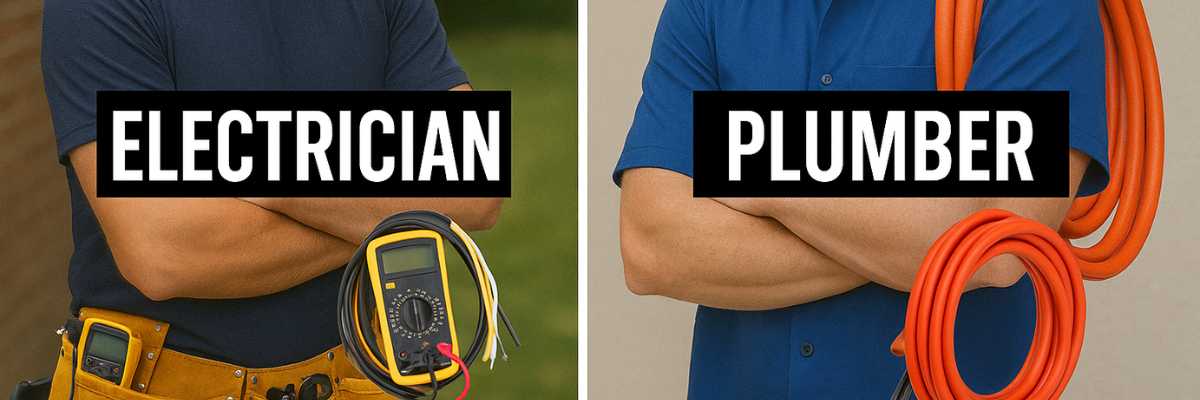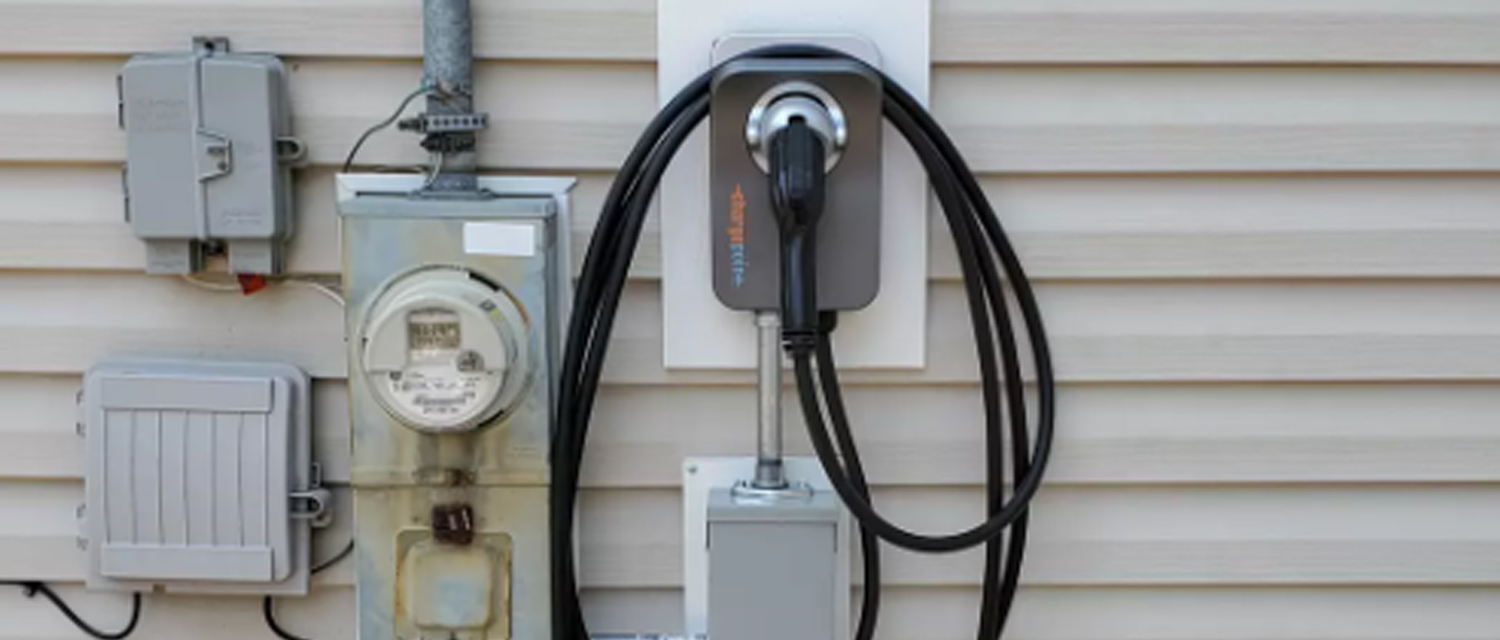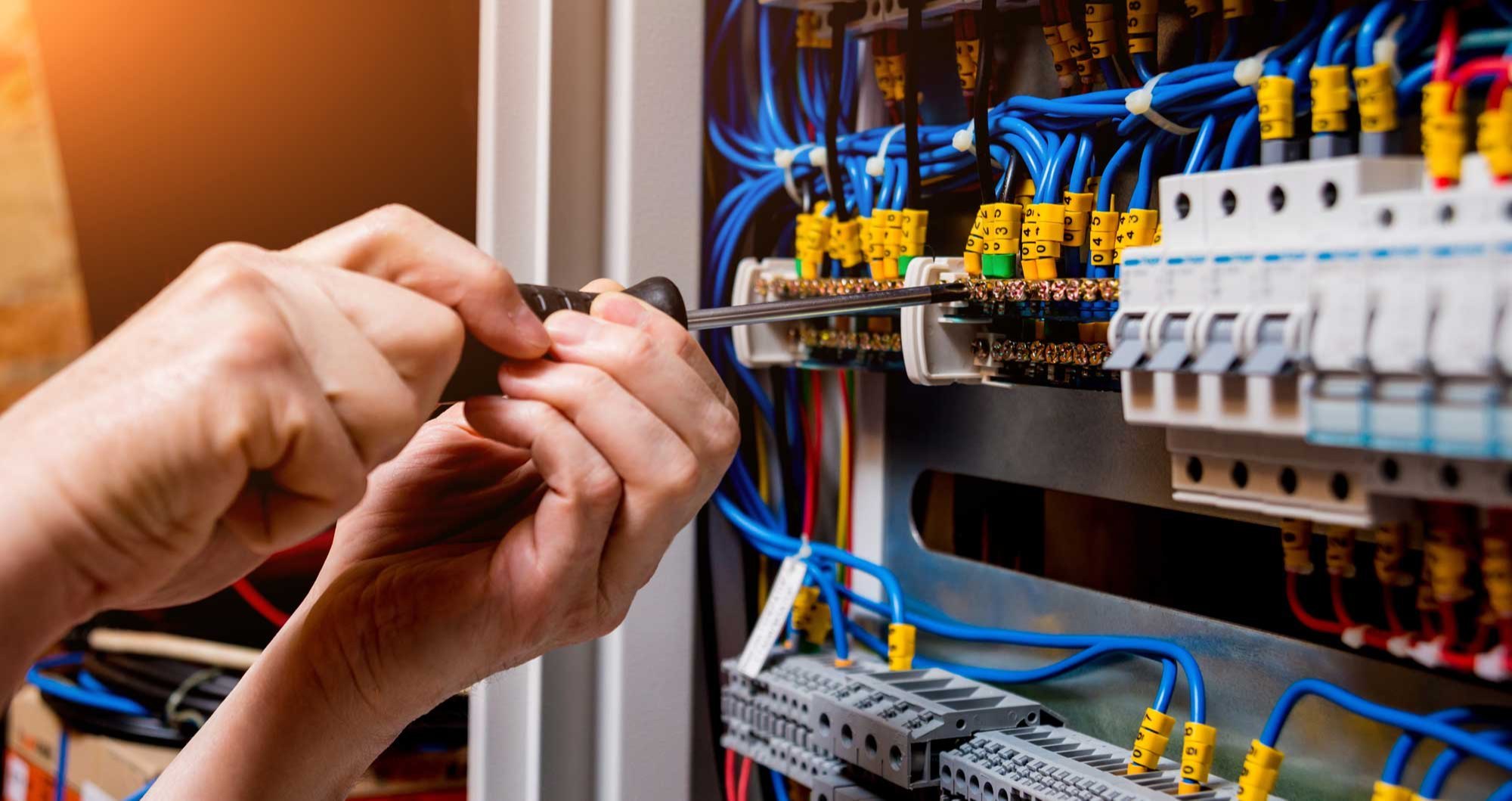Get free quotes within minutes
Electrician vs Plumber - What's the better job In Australia?

Table Of Content
- Introduction
- How Do You Become an Electrician?
- Services Provided by Electricians
- How Do You Become a Plumber?
- Services Provided by Plumbers
- Comparing Earnings: Electricians vs Plumbers
- Work Environment and Job Satisfaction
- What Electrical and Plumbing Work Might Look Like Shortly
- Electrician or Plumber: Which Job Is Right for You?
In Australia, electricians and plumbers are trades that are continually in extreme demand. If you decide to become an expert in this sort of sphere, you could have a question about which of the jobs is more expensive. Electricians and plumbers have decent job security and acceptable wages; however, the field you need to choose is up to you and your abilities. All right, let’s get the info directly down and up to assist you in making the right choice.
How Do You Become an Electrician?
It may appear smooth to end up an electrician in Australia. However, the journey isn't as clean as it looks. Electrical work is not only about several connections of wire. To be a qualified electrician, one needs to attend a specific course as well as gain sufficient practical experience.
First, and this must be a major step, one must pass a course in electrotechnology. There are two main levels of training: Certificate II and Certificate III. Certificate II trains the individual with basic knowledge and skills, while many employers seek apprentices who have completed Certificate III. This advanced training makes you desirable in the eyes of prospective employers in the job market.
Electrical training is completed after you complete your coursework, and you will need to get an electrician's license. The licensing provisions are based on the state, and before one can be licensed, they are supposed to work as an apprentice for approximately four years. This phase of your training exposes you to employment where you are expected to work under supervision till you achieve the required qualifications for an independent electrician.
This can be done by choosing to start working on your own as soon as you get your licence. If you are a qualified electrician, you are also able to create, fix and modify electrical networks for homes, offices, and industries. Some decided to work exclusively with homes, while others worked with businesses or industries.
Electricians also depend on the latest technologies that are in use in the market. Alternatively, some new systems and devices are constantly being designed, and the electricians have to know how to integrate and service them. This constant learning may be a problem, but it can also be a fun experience for geeks who love working on wires, switches, and electrical appliances and technologies.
Services Provided by Electricians
Some services that qualified electricians provide include:
- Planning, installation, and repair of power and lighting devices.
- Installation of security and fire protection systems.
- EV charger installation for electric vehicles in residential and commercial properties
- Telephone and data systems, including installation and repair services.
- USB PowerPoint and ordinary PowerPoint fixings.
- Repairing electric home equipment.
- Wiring, rewiring and installation
- Electrical appliance installation and maintenance
- Indoor lighting installation
- Outdoor lighting installation
- Home automation and security device installation
- Home theatre system installation
- MCB and electric meter installation
- Getting a connection from the mainline
- Cable wiring installation
If you ever require electric work, you must hire a licensed electrician to do the process for you. This guarantees that while the work is being performed, the house is secure and in the hands of authorised electricians.
How Do You Become a Plumber?
Similar to electricians, plumbers are also required to undergo particular education and benefit revelations in Australia to gain their potential. This is going to reveal that plumbing is a skilled alternative and no longer only a mere interest in repairing a sink that is leaking.
The first and most important step toward turning into a plumber is to take a route in plumbing. There are four training levels, namely Level II, which is designated as the pre-apprenticeship level of training. Many employers prefer to employ apprentices who have to be at least a Level II course. However, to gain a full licence to become a plumber, you are required to go through training up to Level IV.
After completing your coursework, you may get hold of an apprenticeship of approximately four years, similar to that of an electrician. When doing this, you will be required to work under the near supervision of a licensed plumber and perform all precise plumbing duties.
After you've finished your apprenticeship, you will be able to get an open plumber’s license. This will enable you to work on your own and even establish your very own plumbing company. To become a plumbing contractor, you may also want to take some commercial enterprise training to prepare for working your own business.
A plumber can specialise in the construction work or the maintenance work in Australia. There are those plumbers who specialise in either of the two, depending on the course they took or the area they are interested in. Also, if you can get a gas fitter’s license, you can fit gas systems and hot water systems, which are extra skills to add.
Services Provided by Plumbers
In Australia, licensed plumbers perform a range of services, such as:
- Installation of water supply pipes and water pipelines
- Fixing damages in the pipes, taps, showerheads and toilets
- Fitting and servicing of sewage systems
- Waste disposal systems installation and repair
- Constructing and servicing septic systems
- Drainage installation and repair works
- Toilet system installation, repair and maintenance
- Sink installation, repair and maintenance
- Backflow system installation and maintenance
- Kitchen and bathroom plumbing
There is a plumbing task and DIY plumbing does not interest you, hire a plumber with a license and experience. This ensures a huge part of the job is done to a certain standard and meets the legal requirements in the region.
Comparing Earnings: Electricians vs Plumbers
When selecting a profession, one of the giant elements that need to be considered is the profit expectation. Both electricians and plumbers are properly paid in Australia, and from time to time, they are even higher than different tradespeople or professionals.
According to the statistics, on average, plumbers earn $78.40 per hour, while electricians are paid $74.61 per hour; however, they are barely much less than plumbers. However, electricians have recorded faster growth in their pay rates than other non-telecom contractors. For example, between 2015 and 2016, electricians’ prices rose by 4% in comparison to a 1% increase for plumbers. That method allows them to close the prevailing hole in profits and reap similar outcomes inside their destiny.
Above are the average hourly rates according to the region in Australia; however, the rates might vary significantly from region to region. For instance, the average salary paid to the Plumbers in Western Australia turned into $87.67 an hour in 2015-2016, at the same time as electricians earned $87.33 per hour. The higher quotes in this location can be attributed to the need for professional trades at the time of the mining growth.
However, it's far necessary to realise that every one of those figures represents averages. This is why some electricians and plumbers are paid extra or less than others, based on elements which include region, revel in, and form of paintings. For example, inside residential locations, electricians will earn approximately $65 per hour, even as those working in industrial places will earn roughly $75 per hour.
The hourly cost of $75 will amount to $3,000 in step with a week for everybody running a 40-hour week as a tradesperson. When introduced, this amounts to around $12,000 per month. However, work could be seasonal or irregular, and tradespeople rarely work a full 40-hour workweek.
Concerning the yearly wages, electricians receive approximately $85,000 annually, while plumbers receive roughly $79,000 per year. The first is that electrical systems seem to demand more maintenance and replacement than plumbing systems, thus creating more employment opportunities for electricians.
Work Environment and Job Satisfaction
It is not all about the pay when deciding whether to become an electrician or a plumber. Other aspects also include the workplace environment and employee satisfaction experience.
Plumbing tasks call for exertion and are typically considered to involve more grunt work compared to those tasks associated with electrical projects. To become a plumber, one may be required to dig trenches and crawl to work in confined spaces using heavy pipes and equipment. It is also monotonous since most plumbers will perform similar tasks for several days a week, depending on their working schedule.
Electricians, on the other hand, require more in terms of manual dexterity and keen senses. It uses small tools and thin wires that make work demanding due to the need to use a magnifying glass. Electrical work can be more routine; however, it can also be more diversified with the advancement of technology. Electricians could be fitting out buildings with smart technology, installing solar energy, or laying cables for elaborate security systems, which can make the work diverse and stimulating.
However, neither trade is without risks. While working, the plumbers may come across toxic materials or work in unhygienic environments, whereas electricians have the possibility of getting an electric shock or burning themselves. Still, ensuring that workers receive adequate training and that safety measures are in place can help to reduce these possibilities.
It is possible to achieve job satisfaction in both trades, particularly if the person likes to solve puzzles and exercise manual dexterity. Electricians and plumbers do their work individually and are capable of organising their work in small groups. Thus, they are self-reliant and can feel a sense of achievement.
What Electrical and Plumbing Work Might Look Like Shortly
The job outlook for both electricians and plumbers is shiny in Australia. Through the progression of the population as well as the modern technology of manufacturing, the need for humans in this line of work is probably to develop.
Overall, to become a successful electrician, maintaining updated knowledge regarding new technologies is the main factor. With many households and commercial buildings incorporating smart systems into their structure, electricians will be compelled to master how to work with these systems. This indicates that the sector is continuously evolving, which may be encouraging to individuals who like to examine new things.
However, plumbing is a provider that will never go out of favour, seeing that every construction requires the services of a plumber. The work may become more and more specialised as additional materials and techniques appear. Still, plumbers who will not mind going back to school and embracing new tactics hold the brightest future in the field.
Electrician or Plumber: Which Job Is Right for You?
Selecting between the electrician and the plumber depends on what one desires and what one is good at. Overall, if you like to fix things with electricity, think logically, and want to expand your knowledge in terms of technologies, the electrician path would be more suitable for you. Plumbing is ideal if you are okay with doing manual work and repetitive tasks most of the time. Besides, both careers are well-paid and secure; in addition, one can be self-employed. Your choice should, therefore, depend on what you love to do and where you wish to be in future.
YOU MIGHT ALSO BE INTERESTED IN













